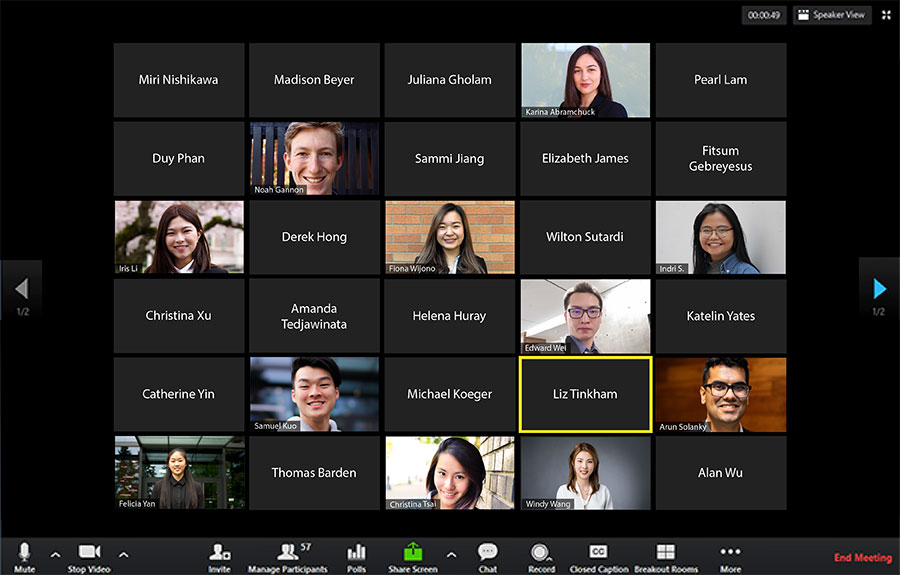The Path to Making a Change
In the midst of all the chaos caused by COVID-19, a group of Foster staff and students are taking action to help small business owners save their companies.
The world is a crazy place right now–everybody knows this. But amidst all the chaos appear a few groups of people.
There are the “disbelievers”–the ones who think this isn’t that big of a deal and continue on with their daily lives as far as possible.
There are the “watchers”–those people who monitor the news minute by minute, tracking the pandemic and hoping for any sign of an end.
There are the “quaranteens”–the people who follow public guidance and stay at home, tolerating the disruptions to their routine for the greater good.
There are the “healers”–the medical professionals on the front lines, risking their own lives to minimize the death toll.
There are the “essentials”–the unsung heroes who keep their businesses running in the midst of all the uncertainty to provide us with the core functions we need to survive.
And finally, there are the “sufferers”–the people who have had their businesses, their livelihoods, either severely restricted, shut down, or damaged beyond repair–and that is who we are here to talk about today.
In 2018, there were 30.2 million small businesses in the United States that employed a whopping 58.9 million people (Source: US Small Business Administration). For reference, there were a total of 155 million people employed in the US for the same year (Source: US Bureau of Labor Statistics). This means that 38% of the working population in the US were employed by small businesses in 2018. However, due to the coronavirus pandemic, almost 22 million Americans have filed unemployment claims (Source: CNN), a large portion of which stem from small businesses being unable to operate. While there are multiple parties trying to help these businesses – the government with various forms of monetary aid and community members ordering takeout from local restaurants just to name a few – a major question remains: what happens after?
Once all of this is over and we return back to life as we knew it, or some version of it, can, and will these businesses be able to return to functioning at their pre-pandemic states – and can we help them get there? What changes will they need to make in order to stay alive until that point, and how many of those changes will need to persist beyond the end of the pandemic? That’s where a group of 38 people–students, professors, and professionals–in Seattle, WA come in.
I like to call this group the “changemakers”.
Liz Tinkham, adjunct professor at the Foster School of Business, pulled together a group of student and alumni volunteers, as well as professional advisors, to work on creating a business continuity plan for small minority-owned businesses impacted by COVID-19 in partnership with the UW Consulting and Business Development Center and Ascend. This group is working around the clock to identify the biggest challenges facing small businesses right now in order to develop tailored recommendations to help them ensure the success of their businesses both during and after the pandemic.
Once the project took off, it quickly caught the attention of local companies such as SAP Qualtrics and Hemispheres, who wanted to get involved with helping out the local community. The end goal of the project is to develop a playbook for small businesses which will provide them with resources on how to respond, recover, and grow from today’s challenges. The playbook will likely include recommendations around financial, legal, and operational issues. This is a group of people who saw a problem arising in their community, and decided to use their knowledge and resources to do something about it–to make a change.
Guest post by Simran Kota, BA 2020

